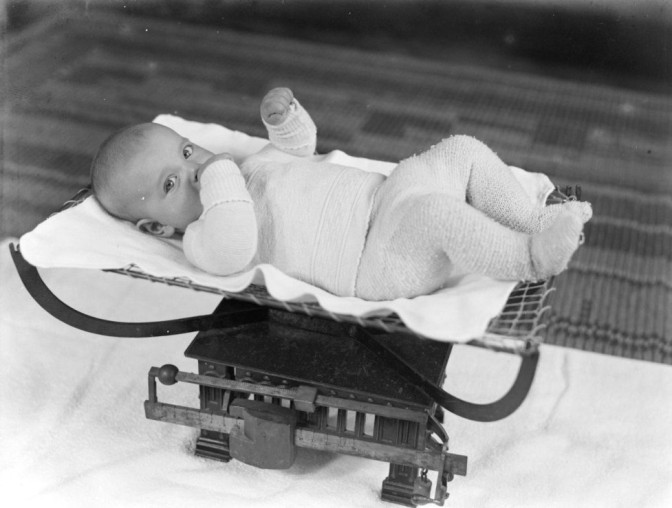If you’re trying to find information about people born in the last century, you won’t find much online. Dutch privacy laws restrict access to records of people born less than hundred years ago. To access these records, you will need their consent or proof of death.
Information doesn’t come online the minute it’s 100 years old either. Not all archives put their birth, marriage and death records online, and those that do do not always immediately scan or index the records. Some archives choose to make records public in blocks of ten years. If you’re out of luck, a 1914 record may be in the 1913-1922 batch and may not become public until 2023 and may not be available online until the 2030s.
Three important sources to check for 20th century people that you can access without permission are:

Baby on a scale. Credits: Nationaal Archief (Willem van de Poll)


> Dutch privacy laws restrict access to records of people born less than hundred years ago.
This is not entirely accurate. Dutch privacy laws are only applicable to living citizens of the Netherlands. So you can publish information about deceased persons (it get’s a little bit trickier with photo’s of deceased persons due to copyright).
The records from the municipal civil registries are transferred to the archive (and usually made public then) after 100 years (for birth certificates), 75 years (for marriage certificates) or 50 years (for death certificates). This doesn’t come from the privacy laws, but the “Burgerlijk Wetboek”, see
http://wetten.overheid.nl/BWBR0002656/Boek1/Titel4/Afdeling2/Artikel17a/geldigheidsdatum_17-12-2014 (in Dutch).
Thanks for that addition, Bob, you’re absolutely correct. In these quick tips, I don’t go into all of the nuances of all the applicable laws and regulations (I Am Not A Lawyer 😉 ). I wrote this quick tip because I get so many questions about people getting frustrated when they can’t find their close relatives and felt that knowing this 100-year rule of thumb would help them.